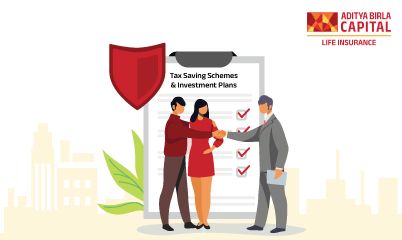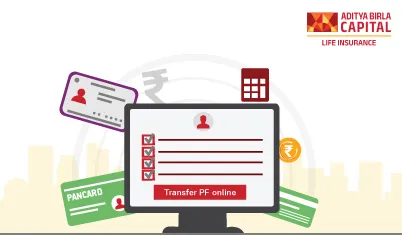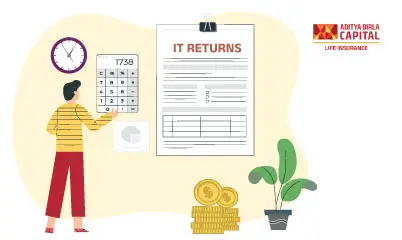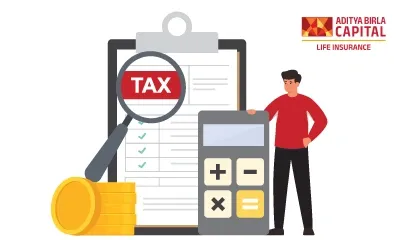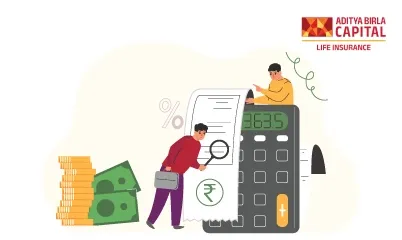Trying to pay your taxes can sometimes feel like learning rocket science, but thankfully, the Income Tax Department's e-portal makes it a whole lot easier. This portal is your one-stop destination for all things related to income tax in India. Whether it's filing your returns, checking your refund status, or just getting information on your tax liabilities, the e-portal simplifies these processes, making them more accessible and user-friendly. Let's dive into how you can get started with this handy tool and make managing your taxes a breeze.
e-Portal for Income Tax
The e-portal for Income Tax is a digital gateway provided by the Income Tax Department of India. It's designed to offer various tax-related services online, making it convenient for taxpayers to fulfil their tax obligations from the comfort of their homes. Services available on the e-portal include filing income tax returns, paying taxes, viewing tax credit statements (Form 26AS), and applying for PAN. It's a secure platform that ensures your personal and financial details are well-protected.
Essential Steps Before Registering on the Income Tax Login Portal
Before you jump into registering on the Income Tax login portal, there are a few essential steps you should take:
-
Gather Your Documents: Have your PAN (Permanent Account Number) card handy, as it's your primary identifier for all tax-related activities. You'll also need your current mobile number and email address, as these will be linked to your e-filing account.
-
Understand Your User Type: The portal caters to different types of users like individuals, companies, and chartered accountants. Knowing your user category will help in choosing the right registration form.
-
Prepare Digital Copies of Documents: If you need to submit any documents (like proof of identity or address), it’s a good idea to have digital copies ready for upload.
-
Check Your Internet Connection: Ensure you have a stable internet connection to avoid any disruptions during the registration process.
Taking these preliminary steps will smooth out your registration process, making it quick and hassle-free.
Registration Process on the Income Tax Portal
Registering on the Income Tax portal is a straightforward process. Just follow these steps to create your account:
● Step 1: Visit the Official Website: Go to the Income Tax Department’s e-Filing portal.
● Step 2: Select 'Register Yourself': Find and click on the ‘Register Yourself’ button.
● Step 3: Choose User Type: Select the appropriate user type from the options available (like 'Individual', 'Company', etc.).
● Step 4: Fill in Basic Details: Enter your basic details such as PAN, name, date of birth, and contact information.
● Step 5: Create an Account: Set up a user ID (usually your PAN), password, and secure access message. This message will be displayed every time you log in, ensuring you're at the correct site.
● Step 6: Verification: Complete the verification process using the OTPs sent to your registered mobile number and email.
● Step 7: Confirmation: Once verified, you'll receive a confirmation message, and your account will be activated.
Remember, having your PAN and other relevant details at hand will make this process much smoother.
How to Login to the Income Tax Portal for Effortless E-filing
Logging into the Income Tax portal for e-filing is easy. Here's how you do it:
● Step 1: Access the Portal: Go to the Income Tax e-Filing website.
● Step 2: Enter Login Credentials: Click on the 'Login' button and enter your User ID (which is your PAN) and password.
● Step 3: Secure Access Message: You’ll see your secure access message, confirming you’re on the correct site.
● Step 4: Enter Captcha Code: For added security, enter the captcha code as shown on the screen.
● Step 5: Dashboard Access: Once logged in, you'll be directed to your dashboard where you can access various services like e-filing of returns, checking refund status, etc.
Make sure to log out after your session to keep your account secure.
Eligibility for Income Tax E-Filing
E-filing of income tax returns is available to almost all individuals and entities. Here's who's eligible:
| Entity Type | E-filing Requirement |
|---|
| Individuals and HUFs | Required for those earning above a certain income threshold. |
| Companies | Mandatory for all companies operating in India. |
| Firms and LLPs | Firms and Limited Liability Partnerships (LLPs) are also obliged to file their returns electronically. |
| Others | Includes trusts, political parties, associations, etc., with taxable income or those claiming tax refunds. |
In essence, if you're required to file an income tax return in India, you're likely eligible to do it through the e-Filing portal. The process is designed to be inclusive, accommodating taxpayers from various walks of life.
Documents Required for Income Tax e-Filing
When you're ready to e-file your income tax returns, having the right documents at hand makes the process much smoother. Here's what you typically need:
- PAN Card: Your Permanent Account Number is your primary identity for all tax-related matters.
- Form 16: Issued by your employer, it details your salary income and tax deducted at source (TDS).
- Interest Statements: This includes interest from savings accounts, fixed deposits, etc.
- Form 26AS: It’s a consolidated tax statement that shows TDS, advance tax, and refund details.
- Investment Proofs: Details of investments that are eligible for deductions under various sections like 80C, 80D, etc.
- Home Loan Statement: If you have a home loan, the statement showing the interest paid can be useful for tax deductions.
- Other Income Details: This includes income from other sources like rent, capital gains, etc.
Having these documents organised beforehand can help you accurately file your returns without any last-minute rush.
Income Tax e-Filing Due Dates 2024
Mark your calendars! Here are the important due dates for income tax e-filing in the year 2024:
| Entity Type | Due Date for FY 2023-24 | Description |
|---|
| Individuals and HUFs | July 31, 2024 | The typical due date for individuals and Hindu Undivided Families (HUFs) without audit requirements. |
| Businesses Requiring Audit | October 31, 2024 | For businesses that need to undergo an audit, extending the filing deadline. |
| Businesses Requiring TP Report | November 30, 2024 | For businesses that must submit a transfer pricing report, further extending the deadline. |
Remember, these dates can be subject to change, and it's always good to stay updated with the latest notifications from the Income Tax Department.
Features of Income Tax e-Portal
The Income Tax e-Portal is packed with features designed to make your tax dealings efficient and user-friendly:
- User-Friendly Interface: The portal has an intuitive design, making it easy for taxpayers to navigate and access services.
- E-Filing of Returns: You can easily file your income tax returns online.
- Tax Payment Facility: The portal allows you to pay taxes online, including advance tax and self-assessment tax.
- Viewing Form 26AS: It enables you to view and download your tax credit statement (Form 26AS).
- Refund Status Tracking: Check the status of your income tax refund.
- Link Aadhaar with PAN: It provides an option to link your Aadhaar card with PAN.
- Rectification Requests: You can submit requests for rectifying any discrepancies in your filed returns.
The portal's focus is on simplifying tax compliance, making it accessible for taxpayers of various backgrounds and understanding levels.
Benefits of Income Tax Department's New e-Portal
The Income Tax Department's new e-portal is a step forward in making tax-related processes more efficient and user-friendly. Here are some key benefits:
- Ease of Access: File returns, pay taxes, and manage your tax affairs anytime and anywhere.
- Faster Processing: Quick processing of returns and refunds.
- Secure Transactions: Enhanced security features ensure the safety of your financial and personal data.
- One-Stop Solution: From filing returns to checking refund status, all services are available under one roof.
- Help and Support: Access to various guides, tutorials, and customer support for hassle-free e-filing.
This upgraded portal is designed to streamline tax processes, making them less time-consuming and more transparent for taxpayers.
New Rules for Income Tax e-Filing
Staying updated with the new rules for income tax e-filing is crucial. As of 2024, some notable updates include:
- Pre-Filled ITR Forms: The portal now offers pre-filled ITR forms to simplify the filing process.
- Aadhaar-PAN Linking: Mandatory linking of Aadhaar with PAN for e-filing.
- Enhanced Validation Processes: Improved validation mechanisms for ensuring the accuracy of the field returns.
- Digital Signature Certificate (DSC): Encouragement to use DSC for verification of e-filed returns for added security.
These changes aim to improve the efficiency, accuracy, and security of the e-filing process.
Register DSC in Income Tax e-Portal
A Digital Signature Certificate (DSC) provides an extra layer of security. Here’s how you can register your DSC on the e-portal:
- Login to e-Filing Portal: Enter your user ID and password to access your account.
- Navigate to Profile Settings: Select ‘Register Digital Signature Certificate’.
- Download DSC Utility: Download the DSC management utility available on the portal.
- Fill in the Required Details: Enter the necessary details and attach your DSC.
- Complete the Registration: Follow the instructions to complete the DSC registration process.
- Once registered, you can use your DSC to authenticate your e-filed returns.
Change the Mobile Number in the Income Tax e-Portal
Changing your mobile number on the e-portal is a simple process:
- Log into the e-Filing Portal: Use your credentials to access your account.
- Go to Profile Settings: Click on ‘Profile Settings’ and then select ‘Update Contact Details’.
- Update Mobile Number: Enter your new mobile number.
- Verify with OTP: You will receive an OTP on the new number for verification.
- Save Changes: Once verified, save the changes.
Updating your contact details ensures you receive timely notifications and OTPs for various e-filing activities.






